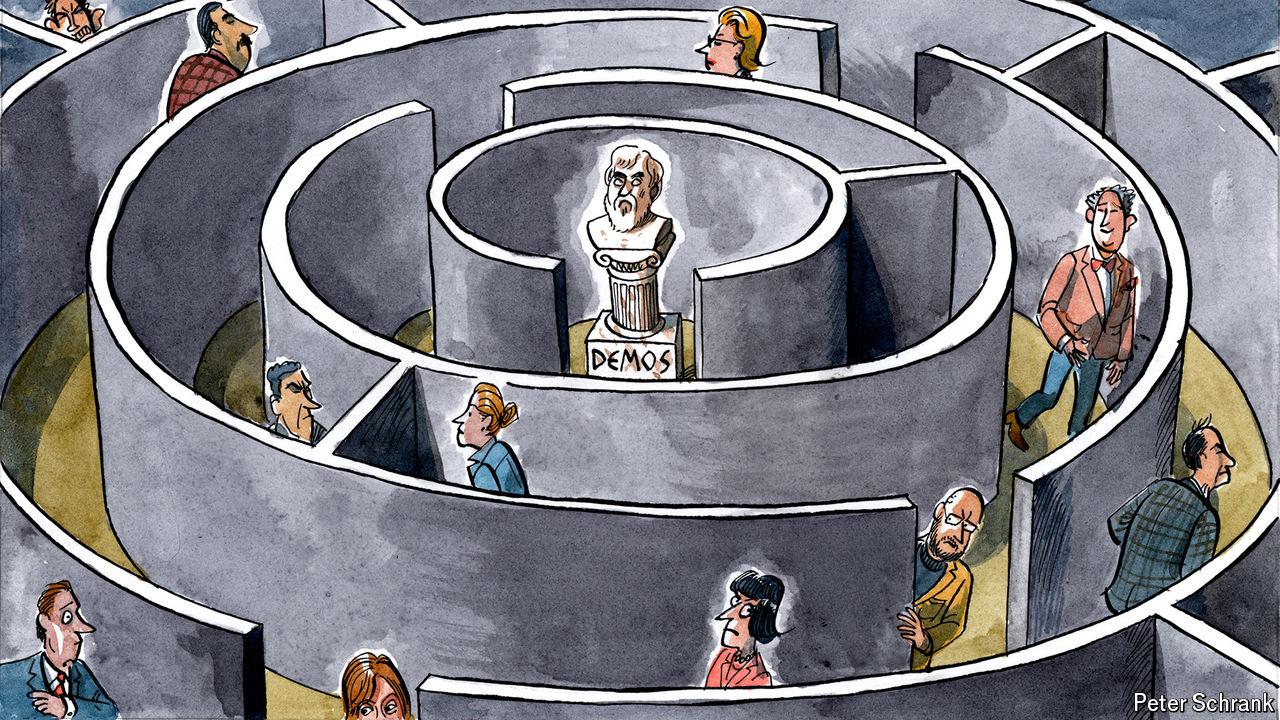
People walking aimlessly around a circular concrete maze. In the centre is a bust of a Greek thinker with the word 'Demos' carved into it
2024-05-02 1038词 困难
To latter-day Aristotles, this half-filled theatre on a Monday night was a sign of another phenomenon with Greek roots: the emergence of a European demos, or common political culture. For centuries in Germany and beyond, civic life has been the stuff of municipalities, provinces or nation-states. Yet in Europe power is increasingly wielded by EU institutions in Brussels. Whether this centralising arrangement can be anything more than a souped-up intergovernmental body, a sort of regional UN on steroids, depends in part on whether citizens of countries across the EU viscerally feel they belong to the same polity. From such a unified demos might emerge a unified European democracy.
经济学人和华尔街日报的文章是会员专属
请加入会员以继续阅读完整文章
成为会员后您将享受无限制的阅读体验,并可使用更多功能
免责声明:本文来自网络公开资料,仅供学习交流,其观点和倾向不代表本站立场。